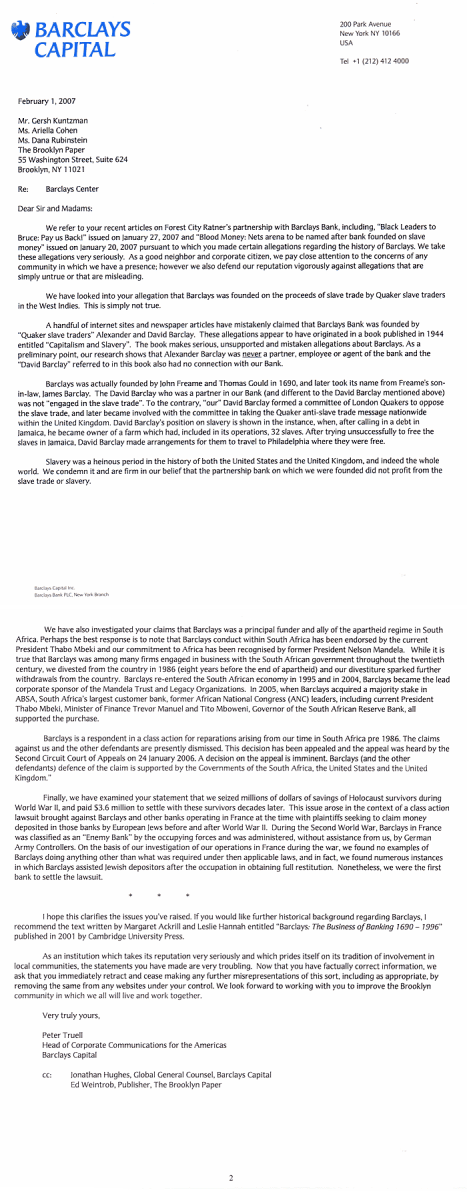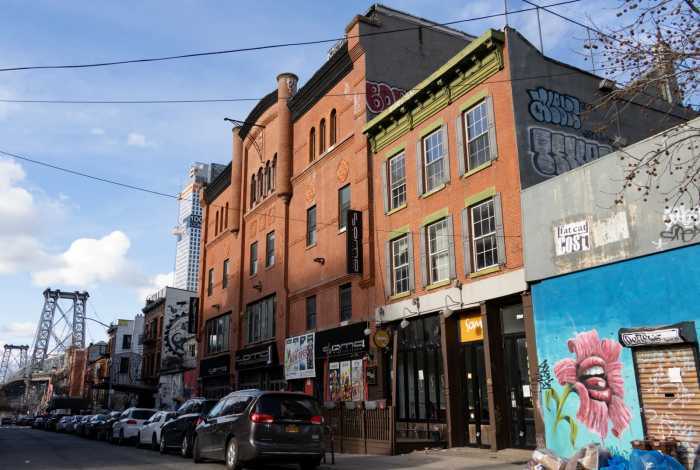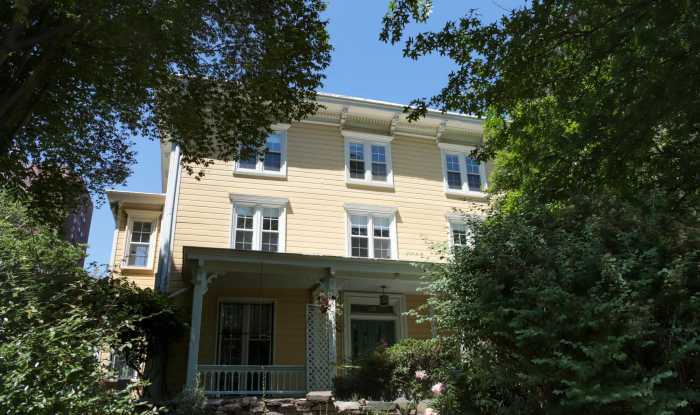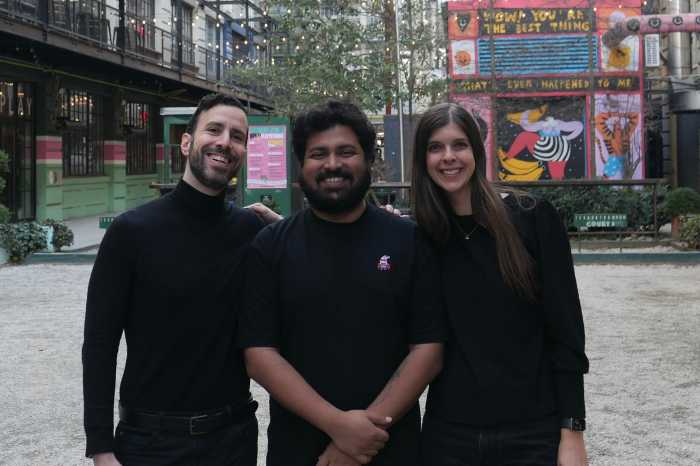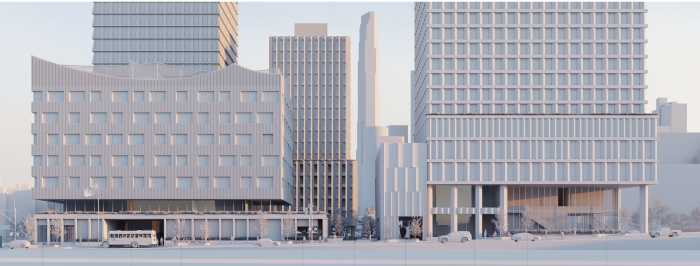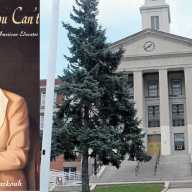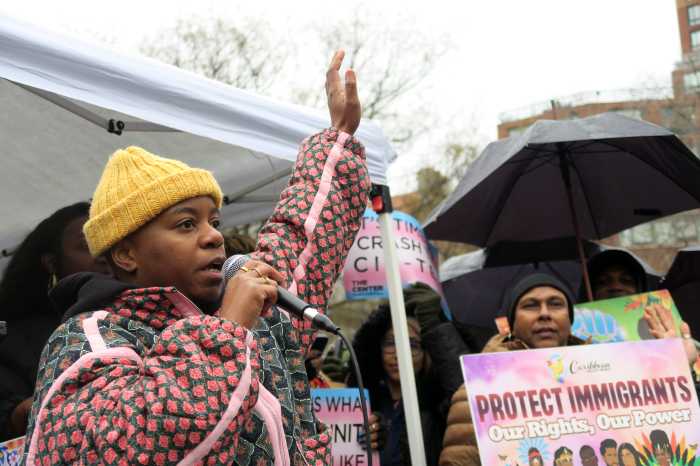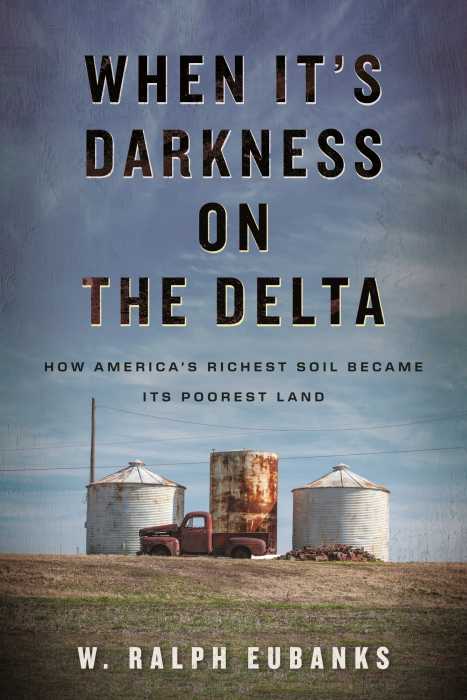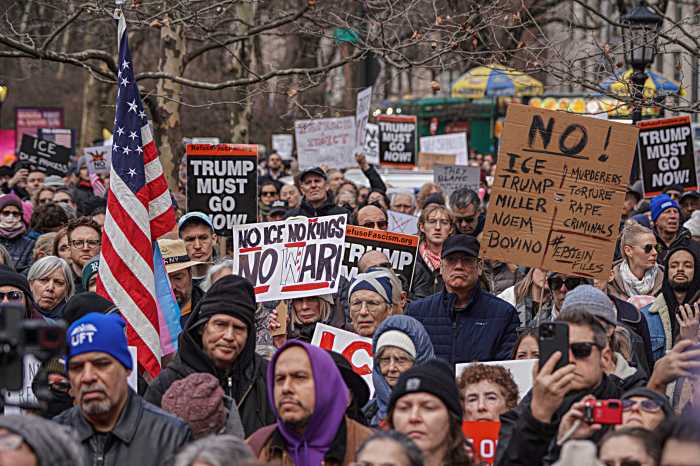A British bank that is under fire from black leaders for profiting from the slave trade centuries ago is fighting back, issuing a long-awaited statement that claims the allegation “is simply not true.”
In letters sent late Thursday to several journalists — including those at The Brooklyn Paper — Barclays spokesman Peter Truell asked that the newspapers “immediately retract” stories that relied on what Truell called “simply untrue” and “misleading” evidence of the bank’s slavery links. (Read his letter here.)
The Brooklyn Paper responded to Truell’s letter with a signed editorial on Friday afternoon.
The Paper’s initial coverage of Barclays’ $400-million naming-rights deal with Atlantic Yards developer Bruce Ratner said that the British financial behemoth was “inexorably linked” to slavery. Barclays was contacted by The Paper several times prior to publication of that story, but had refused to comment.
The story — and a follow-up on Jan. 27 — was followed by stories in the New York Daily News and the Atlantic Yards Report, a Web site.
Although Barclays is one of the world’s largest financial institutions, it has a limited presence in the United States and is using the naming-rights deal at a prominent new basketball arena to introduce itself to American customers.
When that introduction got muddied by coverage of the bank’s distant past, the bank fought back to, as Truell put it, “defend our reputation vigorously against allegations that are simply untrue or that are misleading.”
“It’s clear what they’re doing,” said one journalist (not at The Brooklyn Paper) who is familiar with the coverage of Barclays’ slavery link and has seen the bank’s subsequent letter. “They’re trying to make a big splash in America, so they want to nip this kind of coverage in the bud. Basically, they’re trying to scare reporters off the story.”
The New York Times published its own story about Barclays on Friday and concluded that there is little doubt that Barclays — and other banks — were connected to slavery.
“Much of the wealth generated in the 18th century came either directly or indirectly out of either the slave trade or plantations,” Rutgers professor Christopher Leslie Brown, an expert on early British history, told the paper.
Brown went on to say that “all banks” profited from the trade of slaves.
“Barclays is not unusual in being connected to the history of slavery, nor is it unusually innocent,” he concluded.
Truell would not provide The Brooklyn Paper with supporting data or citations for his claim that “the partnership bank on which we were founded did not profit from the slave trade or slavery.”
The Paper’s editor’s note said Barclays’ role in slavery was cited in a seminal, 1944 book, “Capitalism and Slavery,” written by scholar Eric Williams (who would go on to become the prime minister of Trinidad from 1961-1981).
That book remains in print and was reissued in 1994 with a new introduction by Princeton professor Colin Palmer, who said its central points had never been repudiated.
Truell said the book makes “serious, unsupported and mistaken allegations about Barclays.”
Black leaders — including the Rev. Clinton Miller of the Brown Memorial Baptist Church, the Rev. Herbert Daughtry of the House of the Lord Pentecostal Church and Councilman Charles Barron (D-East New York) — said earlier this week that they would protest the Ratner-Barclays partnership at a rally on Sunday.
That rally has been cancelled “because of the Super Bowl,” Miller told The Paper on Friday.
“It will be rescheduled,” he promised.


